Animals
-
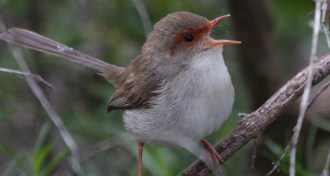 Animals
AnimalsSing a song of bird phylogeny
A new study challenges assumptions about birdsong, finding that the majority of songbird species have female singers.
-
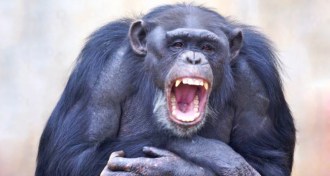 Animals
AnimalsChimps catch people’s yawns in sign of flexible empathy
Chimpanzees may show humanlike empathy, as evidenced by their contagious yawning.
By Bruce Bower -
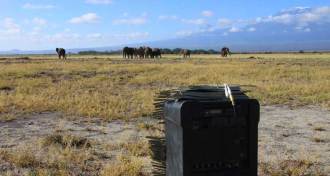 Animals
AnimalsElephants can tell men’s voices from women’s
Amboseli elephants may pick out age and gender — and even distinguish between languages — when listening to human voices.
By Susan Milius -
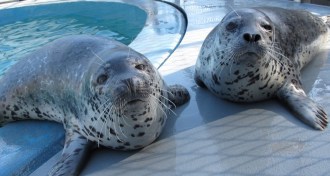 Animals
AnimalsSpotted seals hear well in and out of water
Spotted seals, native to the northern parts of the Pacific, hear frequencies that may mean they are susceptible to the effects of anthropogenic noise.
-
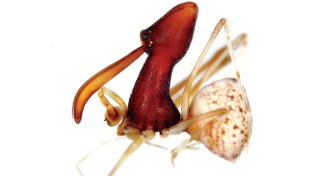 Animals
AnimalsPelican spiders: slow, safe assassins
Spiders, thank goodness, haven’t evolved assassin drones. But the specialized hunters of the family Archaeidae can kill at a distance.
By Susan Milius -
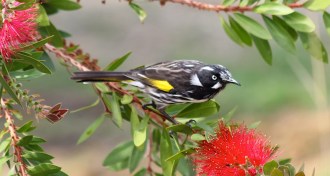 Plants
PlantsAustralian flowers bloom red because of honeyeaters
Many flowering plants converged on similar a color to attract the common birds.
-
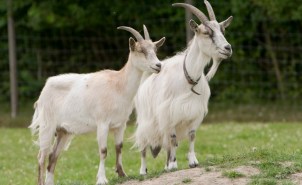 Animals
AnimalsChemical in male goat odor drives the lady goats wild
A new study shows that male goats exude pheromones from their skin that could make female goats ready to roll in the hay.
-
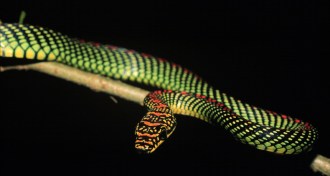 Physics
PhysicsFlying snakes get lift from surrounding air vortices
When a paradise flying snake leaps into and glides through the air, it’s getting lift from small, swirling vortices in the air around it.
-
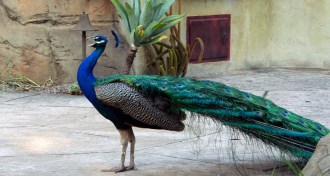 Animals
AnimalsPeacocks sometimes fake mating hoots
Peacocks may have learned a benefit of deception by sounding their copulation calls even when no peahens are in sight.
By Susan Milius -
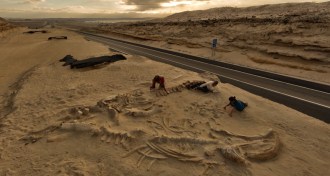 Animals
AnimalsAlgal blooms created ancient whale graveyard
Whales and other marine mammals died at sea and were buried on a tidal flat in what's now in the Atacama Desert in Chile.
-
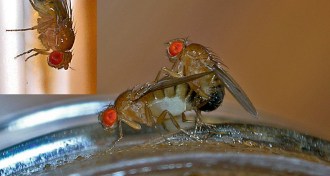 Life
LifeRivalry helps fruit flies maintain brainpower
In lab tests, males dim mentally after generations without competitors.
By Susan Milius -
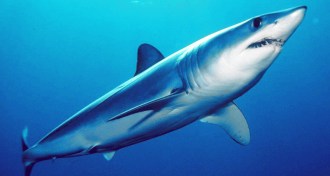 Animals
AnimalsThe mystery of the missing fish heads
When scientists opened up the stomachs of shortfin mako sharks, they found that nearly all of the digesting fish had no heads or tails.